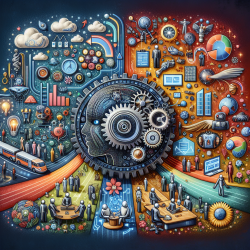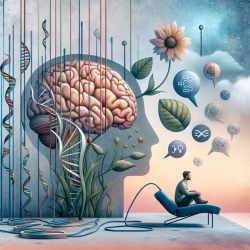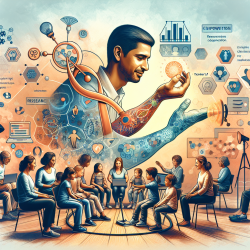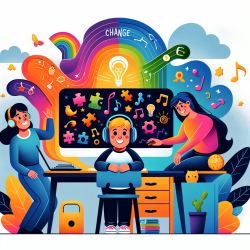The world of human resource management (HRM) is on the brink of a transformative era powered by artificial intelligence (AI). As one of the most disruptive technologies of the 21st century, AI is reshaping how organizations manage their workforce. The research article "The effects of artificial intelligence on human resource activities and the roles of the human resource triad: opportunities and challenges" provides a comprehensive overview of these changes. This blog post will delve into the key findings of this research, offering insights into how practitioners can leverage AI to enhance their skills and improve HR activities.
The Impact of AI on HR Activities
The integration of AI into HR activities has led to significant advancements in five primary areas:
- Task Automation: AI automates repetitive tasks such as resume filtering and interview scheduling, allowing HR professionals to focus on strategic initiatives.
- Optimized Use of HR Data: By enhancing data analytics capabilities, AI helps predict employee turnover, performance outcomes, and more.
- Augmentation of Human Capabilities: AI tools assist in crafting job descriptions and refining recruitment processes to enhance diversity and engagement.
- Redesign of Work Context: AI personalizes training programs and transforms recruitment processes, fostering a more intuitive work environment.
- Transformation of Social and Relational Aspects: AI facilitates new forms of collaboration between humans and machines, enhancing team dynamics.
Opportunities for HR Practitioners
The adoption of AI in HRM presents numerous opportunities for practitioners:
- Efficiency Gains: Automating routine tasks frees up time for HR professionals to engage in strategic planning.
- Data-Driven Decision Making: Enhanced analytics capabilities enable evidence-based decisions that improve organizational outcomes.
- Diversity and Inclusion: AI can reduce biases in recruitment processes, promoting a more diverse workforce.
- Enhanced Employee Experience: Personalized training and development programs lead to higher employee satisfaction and retention.
Challenges to Consider
Despite its benefits, AI integration also poses challenges that need careful consideration:
- Privacy Concerns: Employees may be wary of data collection practices associated with AI tools.
- Resistance to Change: Both employees and managers may resist adopting new technologies due to fear of job displacement or lack of understanding.
- Skill Gaps: The shift towards AI-enhanced HRM requires upskilling for both HR professionals and employees to effectively collaborate with technology.
The Evolving Roles within the HR Triad
The roles within the HR triad—HR professionals, line managers, and employees—are evolving alongside technological advancements:
- HR Professionals: Must champion AI adoption by promoting its benefits and ensuring ethical use while updating their own skills.
- Line Managers: Need to embrace people-oriented roles as they integrate AI tools into their management practices.
- Employees: Should focus on developing skills that complement AI capabilities to remain competitive in the job market.
A Call for Further Research
The research highlights several areas where further investigation is needed. Understanding how AI affects occupational health, performance management, talent retention, and compensation will provide deeper insights into its long-term impact on HRM. Additionally, exploring how organizations can foster an inclusive culture that embraces technological change is crucial for successful implementation.
Conclusion
The integration of AI into human resource management offers exciting possibilities for transforming traditional practices. By embracing these technological advancements, practitioners can enhance efficiency, improve decision-making processes, and create a more inclusive work environment. However, it is essential to address challenges such as privacy concerns and resistance to change through continuous learning and adaptation.
If you're interested in exploring this topic further or conducting your own research on the effects of artificial intelligence on human resource activities and roles within organizations like TinyEYE providing online therapy services schools worldwide today! To read the original research paper please follow this link: The effects of artificial intelligence on human resource activities and the roles of the human resource triad: opportunities and challenges.










